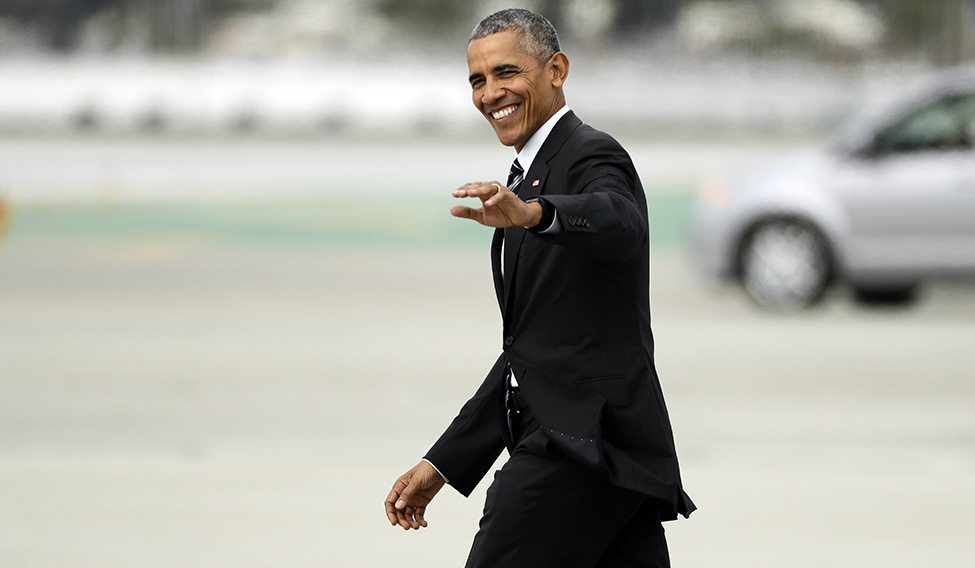The Merriam Webster dictionary defines feminism as 'the theory of the political, economic, and social equality of the sexes'. It neither means women be granted special status, nor men be pulled down to accommodate women. It just means 'being equals'.
None of the dictionaries, however, have been able to settle the worldwide debate why feminism is important and how people can do their bit to ensure gender equality at various levels. While several strong women such as Sheryl Sandberg, Beyonce, Malala Yousafzai, Emma Watson and Michelle Obama have been working towards making the world a better place for women, there are men who have been fighting gender stereotypes and setting an example for those who shy away from the 'feminist' label. Here are some cool men who not only preach but practise equality of the sexes:
Barack Obama
“I did want to stop by and make one thing very clear: I may be a little greyer than I was eight years ago—but this is what a feminist looks like. Of course, in my household there’s no choice,” said Barack Obama, then president of the United States, at the White House’s first ever State of Women summit in June 2016. This was the first time that White House was hosting an event that could serve as an open discussion on gender equality.
During his time at the White House, Obama was instrumental in paving way for many social reforms for women empowerment at personal and professional levels. His legacy includes defending women's reproductive rights, fighting for equal pay for equal work, and working in tandem with his wife, Michelle, in creating a positive change for women across the world.
Soon after being elected as the US president, Obama signed the Lilly Ledbetter Fair Pay Act that allows individuals to file equal pay lawsuits against their employers who discriminate based on age, religion, national, origin, race, sex and disability. He also made birth control more accessible through the Affordable Care Act.
Ziauddin Yousafzai
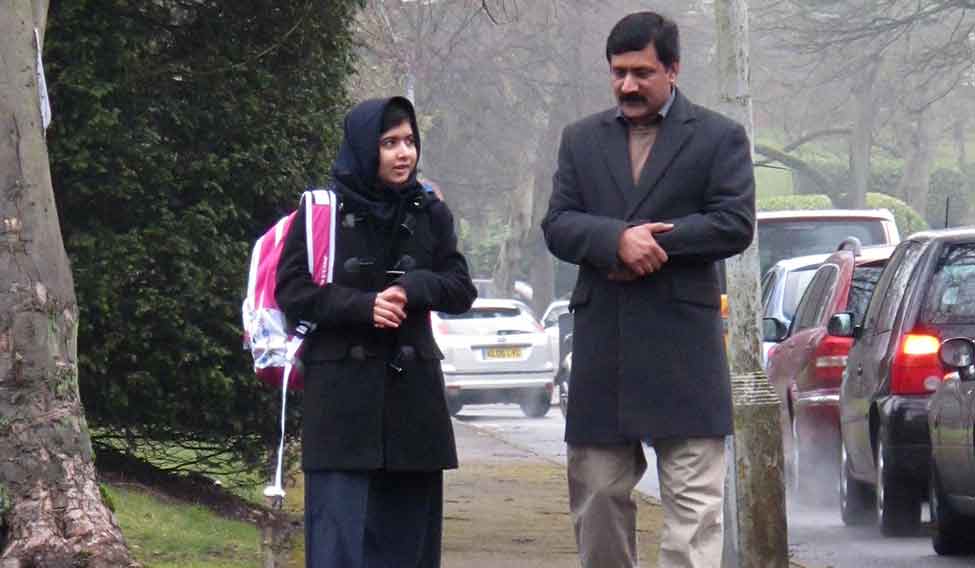 [File photo] Malala and her father, Ziauddin, walk to her school in Birmingham, central England | AFP
[File photo] Malala and her father, Ziauddin, walk to her school in Birmingham, central England | AFP
It has been over four years since Malala Yousafzai, then 15-year-old, was shot by the Taliban for defying their ban on female education in Swat Valley, Pakistan. Her father, Ziauddin, was an obscure schoolmaster, running his own school, with about 1, 100 students. The attack did not deter either Malala from pursuing education, or Ziauddin from supporting his daughter in raising her voice for education rights of girls. Malala is now the youngest Nobel laureate, but she remains her father's little girl.
A proud Pashtun and an education activist himself, Ziauddin has his roots in Afghanistan. In his culture, birth of a girl child is no reason to rejoice; only a male child is brought to the world with much fanfare. But he refused to succumb to the pressures of the patriarchal society. He not only celebrated his daughter's birth, but also named his daughter after a legendary Pashtun warrior heroine, Malalai of Maiwund.
In many interviews, Malala has said that her father 'is her wings', the man who inspired her to be who she is today. But, a humble Ziauddin says that the only thing he did was refrain from clipping his daughter's wings.
Justin Trudeau
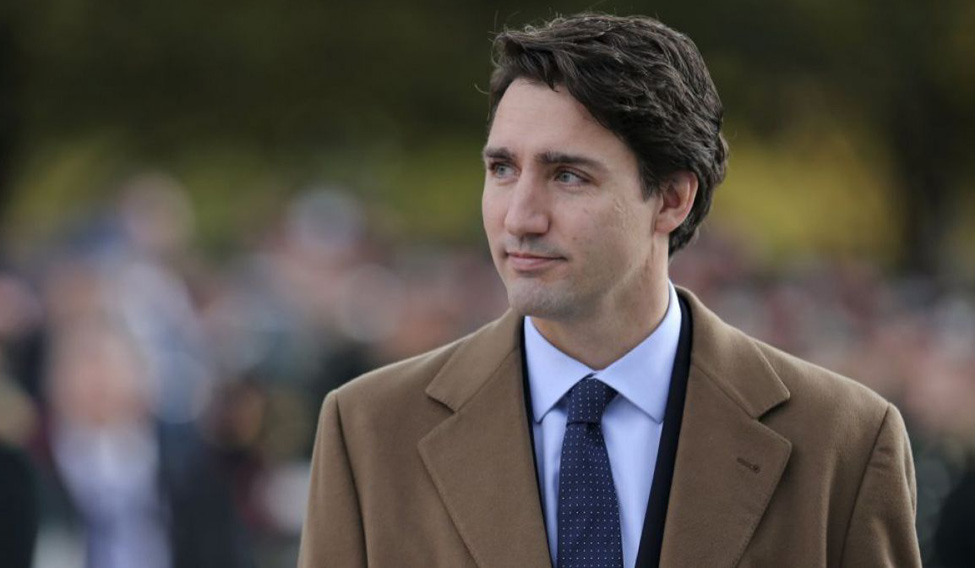 [File photo] Canadian Prime Minister Justin Trudeau | Reuters
[File photo] Canadian Prime Minister Justin Trudeau | Reuters
Canadian Prime Minister Justin Trudeau is a proud feminist. And he is vocal about it because he believes the more he talks about feminism, the higher the chances that the people and global media would find it normal for a man to be a feminist.
I am a feminist. I’m proud to be a feminist. #upfordebate
— Justin Trudeau (@JustinTrudeau) September 21, 2015
We saw the feminist in action in 2015, when for the first time in history of Canada, Trudeau introduced a 30-person cabinet with equal representation of men and women. When asked why having gender equality in his cabinet was so important to him, he said, "Because it's 2015."
Trudeau set an example yet again, when he ruled out the possibility of a burkini ban similar to that declared by at least 15 French towns in August last year. Instead, citing the example of Canada, he spoke about the importance of tolerance in diverse communities. In another major move, in 2015, Trudeau launched an inquiry into the disappearances and murders of more than 1,000 indigenous women and girls, over past few decades, in Canada. Activists and First Nations leaders had been calling on the Canadian government to initiate an inquiry for years.
Emphasising on the importance of publicly embracing feminism, Trudeau has repeatedly urged people to identify themselves as feminists. While discussing feminism at the World Economic Forum in Davos, Switzerland, in 2016, Trudeau said: "We shouldn't be afraid of the word 'feminist'... Men and women should use it to describe themselves anytime they want." He also said that feminist work shouldn't fall entirely on women's shoulders and men should do their bit in 'supporting and demanding equality'.
Onler Karong
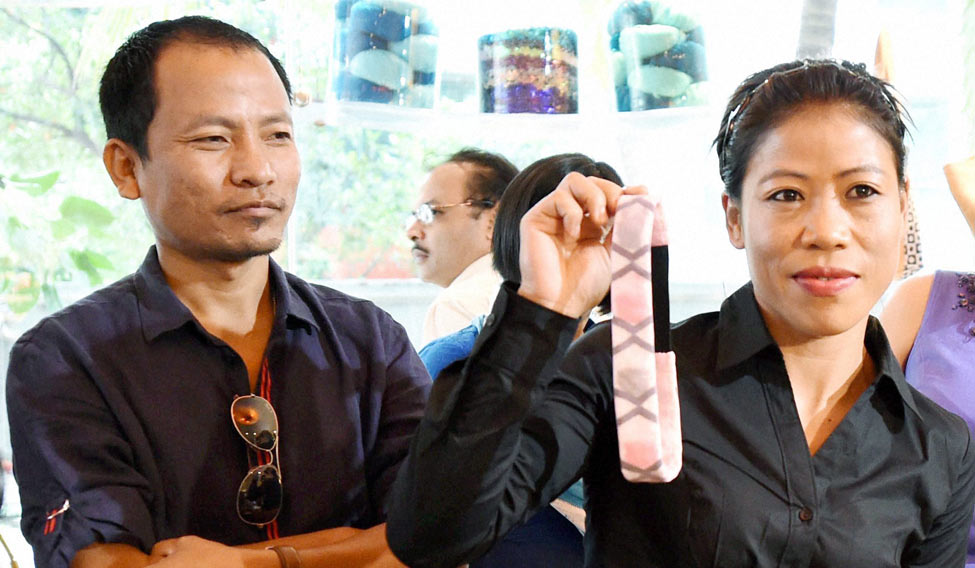 [File photo] Onler Karong with wife Mary Kom, India's boxing star | PTI
[File photo] Onler Karong with wife Mary Kom, India's boxing star | PTI
Behind every successful woman there may or may not be a man, but behind India's boxing star Mary Kom's success is her husband, Onler Karong. If it wasn't for his unwavering support, Kom may not have been able to make a successful comeback to the sport after marriage and having twins.
Kom met Karong in Delhi in 2001, after she lost her luggage and passport during a train journey. Karong, who was studying law in Delhi University was also the president of the northeast students' body in Delhi. He offered her help and was instrumental in getting her a new passport so that she could participate in her first international tournament. He knew about the dreams and aspirations of this young girl from Manipur, who helped her parents in farm chores before taking up boxing. After four years of friendship, they tied the knot in 2005. Two years later Kom gave birth to twin sons. At this juncture, many critics wrote her off and said that it was the end of her career.
However, Karong encouraged her to return to the boxing ring while taking up the bigger share of responsibility of raising the children and managing the house. The five-time world champion may not have returned to become the only Indian woman boxer to win a medal at the Olympics—she won a bronze at the 2012 London Olympics—if it wasn't for Karong's support.
Mahavir Singh Phogat
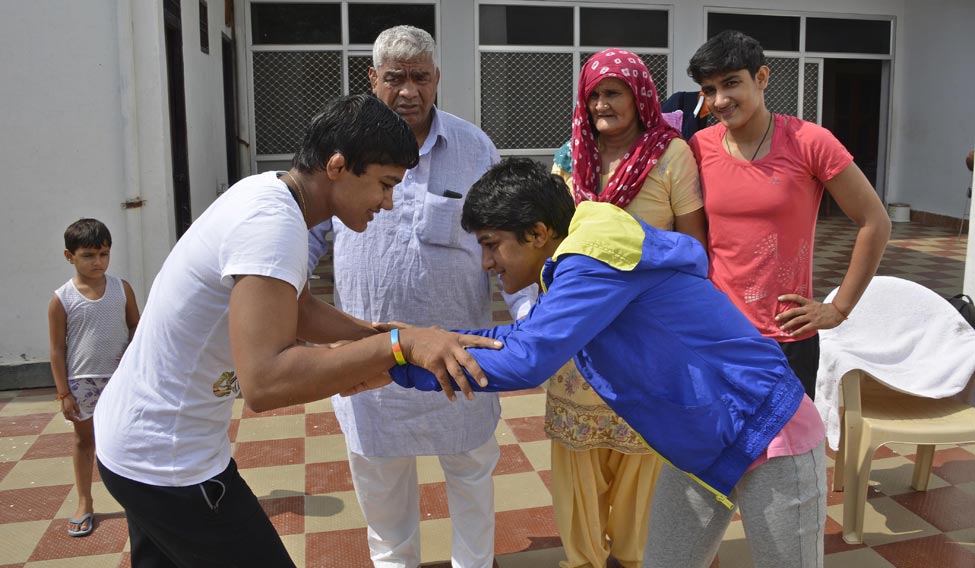 Mahavir Singh Phogat, wife Daya Kaur and niece Sangeeta (in red) look on as Babita (in white) and Ritu (in blue) show off some wrestling moves at their residence | Arvind Jain
Mahavir Singh Phogat, wife Daya Kaur and niece Sangeeta (in red) look on as Babita (in white) and Ritu (in blue) show off some wrestling moves at their residence | Arvind Jain
Wrestler Mahavir Singh Phogat did what no man in Haryana had dared to do before. He fought for women equality in a male-dominated sport. Against all odds, he moulded his daughters and nieces into wrestling champions, breaking stereotypes about both women and wrestling. After circumstances forced Phogat to quit wrestling in 1987 and give up on his dream to win an Olympic gold for the country, he had no plans to make a comeback as either a wrestler or a coach. Belonging to Balali, he had never seen a girl slugging it out in an akhara (mud pit). Wrestling was strictly limited to boys. With three daughters and no son to carry forward his legacy in the sport, the thought of training his girls to be champions never crossed Phogat's mind until 2000 Sydney Olympics, when Indian weightlifter Karnam Maleshwari won an Olympic bronze and became the first Indian woman to win an Olympic medal.
That year, he decided to lead his daughters and nieces into the world of wrestling and train them personally. His decision to introduce girls to wrestling and training them like boys do, raised many eyebrows in the village. He refused to give in to societal pressures and general notions of how a girl child should be raised. He taught his girls to drop all reservations and be indifferent to their gender, and train with all their strength.
Phogat's hard work and conviction, along with his tough training methods, yielded result when his eldest daughter Geeta Kumari won gold at the 2010 Commonwealth Games in Delhi. Since then, there has been no looking back for the girls of the Phogat clan—Geeta, Babita, Ritu, Sangita, Vinesh and Priyanka—who have won many accolades in national and international wrestling events.




